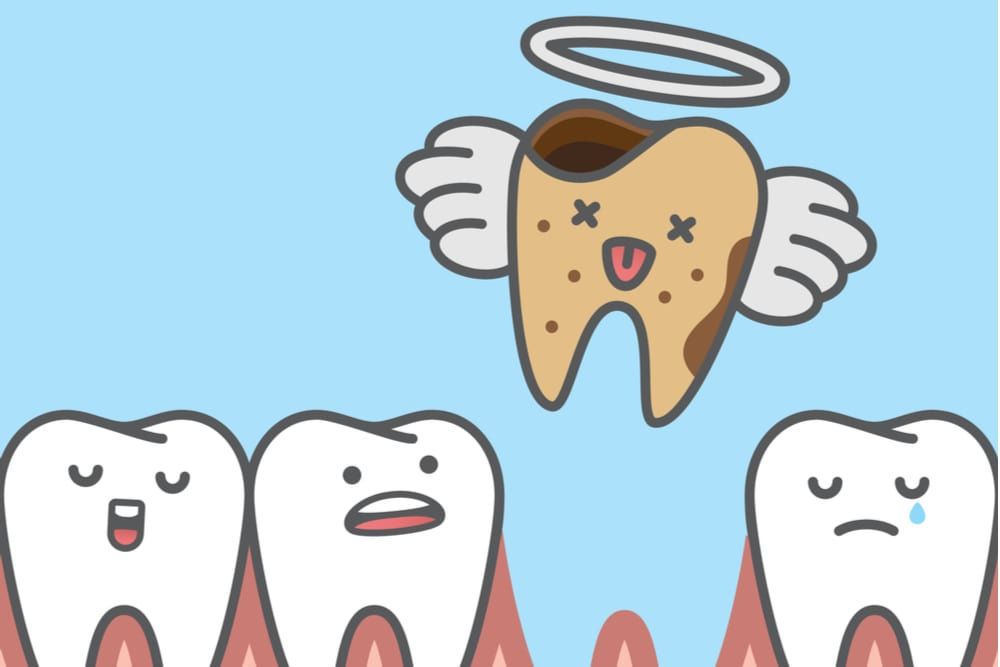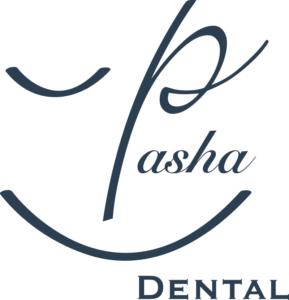Although the majority of dental treatments are aimed at preserving your natural teeth, there are certain instances where the best course of action is to extract the tooth. Tooth extractions become a necessity when teeth are decayed, damaged, or problematic. The most common reason for a tooth extraction is to remove impacted wisdom teeth. At Pasha Dental, we utilize an atraumatic extraction technique to minimize extraction trauma and expedite healing. In fact, Pasha Dental is the first dentist in NYC to get the Piezotome® Cube, which is the latest in atraumatic extraction technology. Approved by the FDA in April of 2018, the Piezotome® Cube has completely revolutionized the way in which extractions are performed. Piezotome® Cube technology combines ultrasonics and piezoelectricity to break down the chemical molecules within tooth enamel while simultaneously stopping the flow of blood. This technology effectively:
- Preserves soft tissue & bone tissue at the extraction site
- Effortlessly cuts through bone to remove the tooth root in its entirety
- Reduces postoperative pain as a result of less trauma
- Optimizes healing
- Prevents postoperative bone loss
Did You Know?
Tooth extractions have been a part of history since Aristotle’s time (384 to 322 BC). Aristotle described historical tooth extractions as using two levers with a single fulcrum. As dental science advanced in the years 1050-1022 AD, this evolved into the use of a single lever to pry the tooth from its socket. Luckily, modern extraction techniques are far more comfortable and far less traumatic than the previously used biomechanical methods.
Frequently Asked Questions
Do I need a tooth extraction?
You may need a tooth extraction of your tooth is severely decayed, cracked, severely malformed, or impacted. You may also need an extraction if you have advanced periodontal disease. However the only way to know for sure if you need a tooth extraction is to schedule a consultation with Dr. Pasha of Pasha Dental.
How can I prepare for my tooth extraction?
In order to prepare for your extraction, Dr. Pasha will discuss your medical history and take x-rays. He will also discuss sedation options, any medications you will need to take before or after surgery, and answer any questions you may have.
On the day of surgery, it is advised to dress in comfortable clothing and closed-toed, flat shoes. You will want to consider that your face may swell after surgery and wear clothing that can be removed without hurting your face. You will also want to wear flat shoes to avoid tripping while walking under the effects of sedation. Depending on the level of sedation expected, you may also be required to bring someone to your appointment to drive you home and monitor you after.
What should I expect during my tooth extraction?
During your tooth extraction, you could be sedated for your comfort. Depending on your level of sedation, you may be able to respond to Dr. Pasha or you may be unconscious. Since Dr. Pasha uses an atraumatic extraction technique, you should not feel any pain during your extraction, but you may feel gentle vibrations or cool sensations of water. However, most patients do not remember their procedure, especially if they were under a deeper level of sedation.
What type of post-treatment care will I need to follow?
Dr. Pasha will discuss your post-treatment care with you at your pre-op appointment. However, he likes to offer his “7 S’s” and some general guidelines to follow:
- No Spitting
- No Straw
- No Smoking
- Nothing Spicy or hot
- Go on a Soft diet
- No Speaking in the first 12 hours if possible, to allow the site to heal undisturbed
- When Sleeping, place a towel on your pillowcase to avoid soiling the pillowcase will blood or saliva
- Continue brushing and flossing, but avoid extraction site
- Rinse your mouth with ½ teaspoon of salt and warm water after meals
- Take any pain medications or antibiotics as directed
- Do not use mouthwash (unless directed otherwise)
What can I eat after a tooth extraction?
After a tooth extraction, you will want to eat foods that will not cause discomfort or healing problems. The day of surgery, you should eat cool, soft foods such as cottage cheese, yogurt, applesauce, pudding, or jello. For the first day, you will want to avoid hot foods because they can prevent the extraction sites from clotting properly.
Once the day of surgery has passed, you can continue eating soft foods that are both cool and warm. Some examples are scrambled eggs, fish (without bones), steamed vegetables, pasta, beans, and soups. It is also advisable to avoid foods that can get lodged into your extraction sites, such as rice. Finally, you will definitely want to avoid hard, crunchy foods such as popcorn, nuts, chips, and hard candies.
How do I manage my pain after a tooth extraction?
Dr. Pasha will prescribe you pain medication and provide instructions on how often to take it to manage your pain. You can also apply an ice or hot pack to your face for twenty minutes at a time. Generally ice works best in the first 48 hours and moist heat works best after the first 48 hours. You will also want to avoid strenuous exercise and keep your head elevated to reduce pain and swelling. Sleeping with an extra pillow can provide additional comfort at night and prevent excess swelling.
How do I manage bleeding after a tooth extraction?
If you experience bleeding after your extraction, you will want to place a gauze pad or tea bag over the site of the bleeding and gently bite down for about 45 minutes. Try to avoid removing the gauze every few minutes to look at it because this can actually cause more bleeding. Also, keep in mind that even though the gauze may look saturated with blood, it is most likely saturated with saliva. During this time, you will also want to avoid hot liquids and exercise, and you will want to elevate your head. If the bleeding continues, please call our office.
Why am I nauseous after my tooth extraction?
Unfortunately, the IV sedation used during your tooth extraction can cause feelings of nausea after your surgery. This is the most likely reason for your nausea, however nausea can also be caused by narcotic pain medication and dehydration. To prevent or decrease nausea, try to start drinking clear liquids after surgery, such as water or Gatorade. Once you can hold down these liquids, slowly progress to soft foods. You may also want to avoid dairy products on the first day, since these can irritate your stomach and cause nausea. If you believe the narcotic pain medication is causing your nausea, try taking a smaller dose by cutting the pills in half or call our office for advice.
What is a ‘dry socket’ and how do I know if I have one?
Dry sockets, or alveolar osteitis, refers to a dislodging of the blood clot over the extraction site. When the blood clot gets dislodged, it allows the nerves and soft tissues of the socket to be exposed to air, food, and the external environment. This results in pain, foul odor and taste, and bad breath. Dry sockets can be caused by smoking or sucking from a straw, but sometimes they have no cause. If a dry socket were to occur, it generally happens about 3-5 days after and extraction. If you think you have a dry socket, call our office. Dry sockets are able to be easily treated by washing out the socket and placing a medicated dressing, usually containing clove oil.
Dr. Pasha Javaheri Saatchi provides friendly, compassionate dental services at the forefront of dental technology to the Brooklyn, NY area as well as to Staten Island, Queens, and Manhattan. To experience the best dental care in NYC, schedule a consultation today at Pasha Dental.



